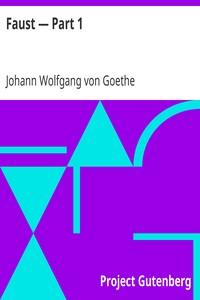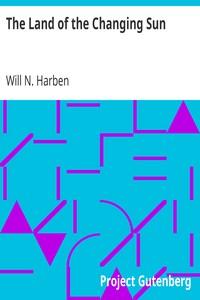Read this ebook for free! No credit card needed, absolutely nothing to pay.
Words: 49410 in 8 pages
This is an ebook sharing website. You can read the uploaded ebooks for free here. No credit cards needed, nothing to pay. If you want to own a digital copy of the ebook, or want to read offline with your favorite ebook-reader, then you can choose to buy and download the ebook.


: The Quaker Colonies: A Chronicle of the Proprietors of the Delaware by Fisher Sydney George Johnson Allen Editor - Pennsylvania History Colonial period ca. 1600-1775; New Jersey History Colonial period ca. 1600-1775; Delaware History Colonial period ca. 16
BIBLIOGRAPHY
THE QUAKER COLONIES
In 1661, the year after Charles II was restored to the throne of England, William Penn was a seventeen-year-old student at Christ Church, Oxford. His father, a distinguished admiral in high favor at Court, had abandoned his erstwhile friends and had aided in restoring King Charlie to his own again. Young William was associating with the sons of the aristocracy and was receiving an education which would fit him to obtain preferment at Court. But there was a serious vein in him, and while at a high church Oxford College he was surreptitiously attending the meetings and listening to the preaching of the despised and outlawed Quakers. There he first began to hear of the plans of a group of Quakers to found colonies on the Delaware in America. Forty years afterwards he wrote, "I had an opening of joy as to these parts in the year 1661 at Oxford." And with America and the Quakers, in spite of a brief youthful experience as a soldier and a courtier, William Penn's life, as well as his fame, is indissolubly linked.
Quakerism was one of the many religious sects born in the seventeenth century under the influence of Puritan thought. The foundation principle of the Reformation, the right of private judgment, the Quakers carried out to its logical conclusion; but they were people whose minds had so long been suppressed and terrorized that, once free, they rushed to extremes. They shocked and horrified even the most advanced Reformation sects by rejecting Baptism, the doctrine of the Trinity, and all sacraments, forms, and ceremonies. They represented, on their best side, the most vigorous effort of the Reformation to return to the spirituality and the simplicity of the early Christians. But their intense spirituality, pathetic often in its extreme manifestations, was not wholly concerned with another world. Their humane ideas and philanthropic methods, such as the abolition of slavery, and the reform of prisons and of charitable institutions, came in time to be accepted as fundamental practical social principles.
The tendencies of which Quakerism formed only one manifestation appeared outside of England, in Italy, in France, and especially in Germany. The fundamental Quaker idea of "quietism," as it was called, or peaceful, silent contemplation as a spiritual form of worship and as a development of moral consciousness, was very widespread at the close of the Reformation and even began to be practiced in the Roman Catholic Church until it was stopped by the Jesuits. The most extreme of the English Quakers, however, gave way to such extravagances of conduct as trembling when they preached , preaching openly in the streets and fields--a horrible thing at that time--interrupting other congregations, and appearing naked as a sign and warning. They gave offense by refusing to remove their hats in public and by applying to all alike the words "thee" and "thou," a form of address hitherto used only to servants and inferiors. Worst of all, the Quakers refused to pay tithes or taxes to support the Church of England. As a result, the loathsome jails of the day were soon filled with these objectors, and their property melted away in fines. This contumacy and their street meetings, regarded at that time as riotous breaches of the peace, gave the Government at first a legal excuse to hunt them down; but as they grew in numbers and influence, laws were enacted to suppress them. Some of them, though not the wildest extremists, escaped to the colonies in America. There, however, they were made welcome to conditions no less severe.
The first law against the Quakers in Massachusetts was passed in 1656, and between that date and 1660 four of the sect were hanged, one of them a woman, Mary Dyer. Though there were no other hangings, many Quakers were punished by whipping and banishment. In other colonies, notably New York, fines and banishment were not uncommon. Such treatment forced the Quakers, against the will of many of them, to seek a tract of land and found a colony of their own. To such a course there appeared no alternative, unless they were determined to establish their religion solely by martyrdom.
This seems to have been the first definite movement towards a Quaker colony. Reports of it reached the ears of young Penn at Oxford and set his imagination aflame. He never forgot the project, for seventeen is an age when grand thoughts strike home. The adventurousness of the plan was irresistible--a home for the new faith in the primeval forest, far from imprisonment, tithes, and persecution, and to be won by effort worthy of a man. It was, however, a dream destined not to be realized for many a long year. More was needed than the mere consent of the Indians. In the meantime, however, a temporary refuge for the sect was found in the province of West Jersey on the Delaware, which two Quakers had bought from Lord Berkeley for the comparatively small sum of 1000 pounds. Of this grant William Penn became one of the trustees and thus gained his first experience in the business of colonizing the region of his youthful dreams. But there was never a sufficient governmental control of West Jersey to make it an ideal Quaker colony. What little control the Quakers exercised disappeared after 1702; and the land and situation were not all that could be desired. Penn, though also one of the owners of East Jersey, made no attempt to turn that region into a Quaker colony.
The experience in the Jerseys and elsewhere very soon proved that if there was to be a real Quaker colony, the British Crown must give not only a title to the land but a strong charter guaranteeing self-government and protection of the Quaker faith from outside interference. But that the British Government would grant such valued privileges to a sect of schismatics which it was hunting down in England seemed a most unlikely event. Nothing but unusual influence at Court could bring it about, and in that quarter the Quakers had no influence.
Penn never forgot the boyhood ideal which he had developed at college. For twenty years he led a varied life--driven from home and whipped by his father for consorting with the schismatic; sometimes in deference to his father's wishes taking his place in the gay world at Court; even, for a time, becoming a soldier, and again traveling in France with some of the people of the Court. In the end, as he grew older, religious feeling completely absorbed him. He became one of the leading Quaker theologians, and his very earnest religious writings fill several volumes. He became a preacher at the meetings and went to prison for his heretical doctrines and pamphlets. At last he found himself at the age of thirty-six with his father dead, and a debt due from the Crown of 16,000 pounds for services which his distinguished father, the admiral, had rendered the Government.
Here was the accident that brought into being the great Quaker colony, by a combination of circumstances which could hardly have happened twice. Young Penn was popular at Court. He had inherited a valuable friendship with Charles II and his heir, the Duke of York. This friendship rested on the solid fact that Penn's father, the admiral, had rendered such signal assistance in restoring Charles and the whole Stuart line to the throne. But still 16,000 pounds or ,000, the accumulation of many deferred payments, was a goodly sum in those days, and that the Crown would pay it in money, of which it had none too much, was unlikely. Why not therefore suggest paying it instead in wild land in America, of which the Crown had abundance? That was the fruitful thought which visited Penn. Lord Berkeley and Lord Carteret had been given New Jersey because they had signally helped to restore the Strait family to the throne. All the more therefore should the Stuart family give a tract of land, and even a larger tract, to Penn, whose father had not only assisted the family to the throne but had refrained so long from pressing his just claim for money due.
So the Crown, knowing little of the value of it, granted him the most magnificent domain of mountains; lakes, rivers, and forests, fertile soil, coal, petroleum, and iron that ever was given to a single proprietor. In addition to giving Penn the control of Delaware and, with certain other Quakers, that of New Jersey as well, the Crown placed at the disposal of the Quakers 55,000 square miles of most valuable, fertile territory, lacking only about three thousand square miles of being as large as England and Wales. Even when cut down to 45,000 square miles by a boundary dispute with Maryland, it was larger than Ireland. Kings themselves have possessed such dominions, but never before a private citizen who scorned all titles and belonged to a hunted sect that exalted peace and spiritual contemplation above all the wealth and power of the world. Whether the obtaining of this enormous tract of the best land in America was due to what may be called the eternal thriftiness of the Quaker mind or to the intense desire of the British Government to get rid of these people--at any cost might be hard to determine.
Penn received his charter in 1681, and in it he was very careful to avoid all the mistakes of the Jersey proprietary grants. Instead of numerous proprietors, Penn was to be the sole proprietor. Instead of giving title to the land and remaining silent about the political government, Penn's charter not only gave him title to the land but a clearly defined position as its political head, and described the principles of the government so clearly that there was little room for doubt or dispute.
Free books android app tbrJar TBR JAR Read Free books online gutenberg
More posts by @FreeBooks

: The Last Stetson by Fox John Jr - Kentucky Fiction; Vendetta Fiction; Mountain life Fiction; Cumberland Mountains Fiction


: Faust — Part 1 by Goethe Johann Wolfgang Von - German poetry Translations into English; Legends Germany Drama; Faust -approximately 1540 Drama; Magicians Drama Best Books Ever Listings; Harvard Classics





